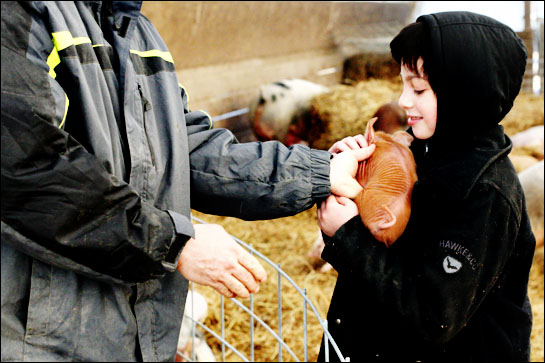
There’s a reason that you see so many photos of the same activities on this blog. Because I’m not a big fan of dabbling. I want the kids to find what they are great at and focus on that. There is a wide body of research to show that being great at something feels a lot better than dabbling.
We should use this research to guide education, because nowhere in the world is well-roundedness still valuable. The last time you actually needed to be well-rounded was when the landed gentry was trying to marry off one of their daughters in the 1500’s. Then, it was good to find a woman who could dance, speak a bit of French, cook enough to supervise the household help, and play a bit of piano and keep up with male conversation about politics if need be. That’s well rounded. Read more








